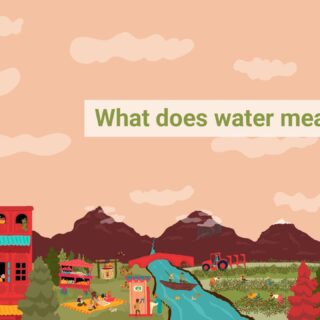The 3rd International Forum on Water Security and Sustainability
Peter Goodwin: Balancing water security with the needs of a healthy environment face significant challenges and provide opportunities for innovation
Over the past 15 months, the world has experienced a once-in-a-generation pain, loss and hardship instigated by the COVID-19 global pandemic. Although it is a long and difficult road ahead, there is now great hope that the power of innovation, technology and global collaboration will prevail. COVID-19 addresses the ‘Acute’ sickness facing the world but the Third International Form on Water Security and Sustainability takes on the other ‘Chronic’ sickness facing the world – that of climate change and the effects on water security and sustainability as expressed through the United Nations Sustainability Development Goals.
Limiting the global temperature rise below 1.5°C to slow the increasing variability in storm and drought behavior, ensuring reliable water supplies, improving the quality of life within a healthy earth system will require a similar but more sustained international response. Agency leaders face a daunting challenge – how to manage large river basins for the benefit of communities and the environment when these systems are changing rapidly due to climate, population growth and landuse change. Agriculture, urban growth, water quality, environmental sustainability, economic growth, invasive species, resilience to flood and drought are interconnected with responsibilities spread across multiple agencies. These leaders are also confronted with a deluge of data – often at the terabyte or petabyte scale from multiple sources including climate, hydrology, hydraulic, water quality, ecology, economic, demography, agricultural, and human health. Technology to develop interoperability between models and data sources combined by sustained research can develop the knowledge base on which to inform these river basin scale decisions that often need to be made on a close to real-time basis. Research institutes (such as NHRI, IWHR and State Key Engineering Research Centers) and universities are working with experts in government agencies to harness these diverse data sources and build the predictive inter-operable and inter-disciplinary systems models to articulate alternative futures based on management actions that could be taken. These predictions, sometimes captured by visualization and virtualization technologies comprise ‘augmented environmental intelligence’ to assist decisions taken by leaders and communicate these benefits and consequences to the communities most impacted within the river and coastal ecosystems.




